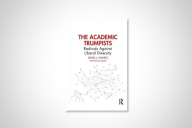You have /5 articles left.
Sign up for a free account or log in.
Momentum has been building for the federal government to take increasingly aggressive steps to wade into the student loan markets, even amid continuing disagreement about whether and/or how serious a crisis there really is. At the urging of lenders, lawmakers have moved from merely seeking to ensure that there are alternative providers of loans, so that students do not lose access to college, to calling for outright financial assistance for banks and other loan providers.
Education Secretary Margaret Spellings and Treasury Secretary Henry Paulson are reported to be preparing this week to announce some joint attempt to restore liquidity to the credit markets on which lenders depend, perhaps by calling for an existing government entity like the Federal Financing Bank to buy student loans that lenders are unable to sell through the traditional credit market, as suggested by Sen. Chris Dodd (D-Conn.) and others.
With that possibility lurking in the near future, though, aides to lawmakers on the Senate Health, Education, Labor and Pensions Committee are floating another idea that lenders favor but critics deride as an unprecedented, unnecessary and potentially damaging bailout.
Under the proposal, which was described in an e-mail message sent by a Senate aide that was shared with Inside Higher Ed, the Education Department would commit to buying "from time to time any or all of such loans originated or purchased by" any lender that so desires, at the face value of the loan. The plan would then allow the lender to repurchase "any of the loans sold to the Secretary" within a year "upon the same terms and conditions" under which the department bought the loans from the lender. The arrangements, known as "standby loan purchase agreements," would be possible through July 2009.
As described by the Senate aide, the plan -- which was suggested by the Education Finance Council, which represents nonprofit lenders -- "would allow lenders to issue bonds more easily because they could demonstrate that investors could get out of them at any time because [the] Secretary has agreed to purchase loans."
Peter Warren, senior vice president for government relations at the Education Finance Council, said that because "investors would know they can sell [student loans] on an expedited basis, I think they can be brought back into this market.... Having the department as a standby purchaser would enable that."
The lenders' expectation, he said, is that "the department wouldn’t end up purchasing the loans," because just the knowledge that the federal government is poised to buy them, ensuring a way for an investor to sell the loans at face value, would be enough to restore the loans' value in the credit markets. "This would be actually mean less federal intervention," he said.
Several people familiar with the student lending market, however, characterized the proposal very differently. The fact that a lender could sell to the Education Department any loans that it chooses and then buy the loans back essentially means that the federal government is providing lenders with a "completely free line of credit, which anybody else has to pay for," said Barmak Nassirian, associate executive director of the American Association of Collegiate Registrars and Admissions Officers. Even the other proposals suggested by the lenders and lawmakers, like the one in which the Federal Financing Bank would make loans to lenders to enable them to make student loans, would require lenders to pay some interest on the funds they borrow.
The proposed arrangement could also enable lenders to pick and choose which loans they decide to sell and buy back, potentially resulting in a situation in which lenders hold on to their safest and most profitable loans (those they are likeliest to be able to sell to traditional investors in the credit markets) and to "dump" their riskiest loans, and those most likely to go into default, on the federal government.
"The government will regret it," Nassirian said, "if it gives the keys to the treasury to lenders once again."









